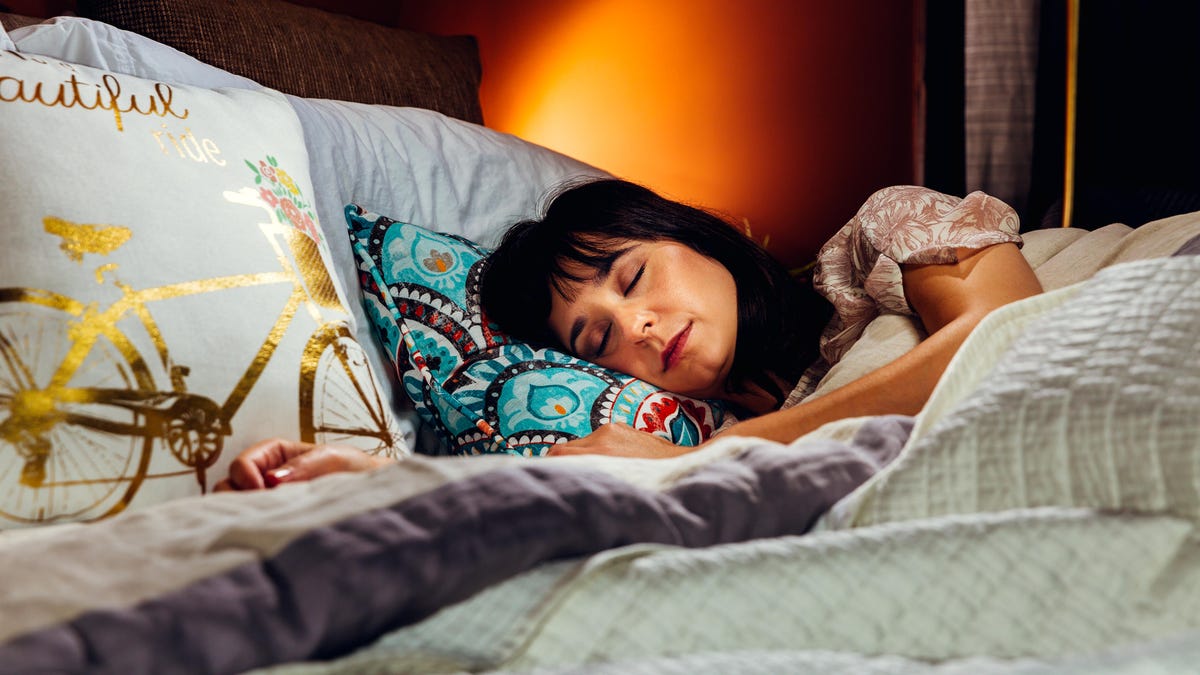Most people know sleep is important, but so many of us continue to get too little of it. Besides making you feel exhausted (and desperate for your morning coffee), failing to get enough shut-eye can have serious effects on your body and mind.
You might be asking, How much sleep do I need? How do I know if I’m not getting enough? How can I sleep more? This guide will uncover the secrets of sleep.
For more sleep tips, check out these seven natural alternatives for getting better sleep and these three ways to fall asleep in under 10 minutes.
How much sleep do adults need?
Is six hours of sleep enough for an adult? The short answer is no. The Centers for Disease Control and Prevention recommends at least seven hours of sleep each night. A full eight hours is considered the ideal sleep duration you should get each night.
Figure out the number of sleep hours you need to get to be at your best, and make it a priority to hit that number.
Here are the recommended hours of sleep by age:
- Newborns: 14-17 hours
- Infant (4-12 months): 12 to16 hours with naps
- Toddler (1-2 years): 11 to 14 hours with naps
- Preschool (3-5 years): 10 to 13 hours with naps
- Kid (6-12 years): 9 to 12 hours with naps
- Teen (13-18 years): 8 to 10 hours with naps
- Adults (18 to 64): 7 to 9 hours
- 65 and up: 7 to 8 hours
Read more: 7 Products to Help You Stop Snoring
Am I getting enough hours of sleep?
Most of us don’t know exactly when we fall asleep each night, so it can be tricky to figure out if you’re actually hitting eight hours. The most surefire way to know if you are getting enough shut-eye is to track your sleep.
There are three main ways to do it, and you can start tonight.
Signs you aren’t getting enough sleep
Besides feeling tired, sleep deprivation can have a major impact on your life. Here are some of the ill effects of not getting enough consistent rest.
Read more: This is The Only Bedtime Routine You’ll Ever Need for Better Sleep
Sleepiness during the day
It’s 11 a.m. or maybe 2 p.m. and you’re dragging. You can’t help from nodding off periodically throughout the day. That’s not supposed to happen after a good night’s sleep.
Forgetfulness and poor concentration
You can’t recall facts and figures you should easily remember. Or perhaps you’ve had one too many forgetful episodes recently.
For instance, you often find yourself misplacing your keys, or walking out the door without your wallet or phone. Studies indicate a link between cognitive ability and total sleep time.
Irritability and anxiety
Are people rubbing you the wrong way lately? Have you noticed that you’ve been more nervous or worried than usual? Our levels of irritability and anxiety can shoot up when we are starved for restful sleep.
Weight gain
The cumulative effects of poor sleep can also lead to weight gain, for starters. Studies strongly suggest that chronic inadequate sleep results in lowered glucose tolerance.
Other adverse effects include increased risk of obesity, high blood pressure, type 2 diabetes and heart disease.
Read more: 7 Best Foods for Better Sleep

